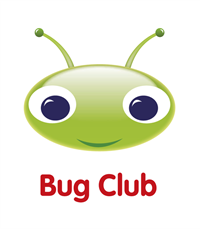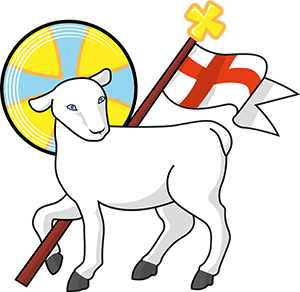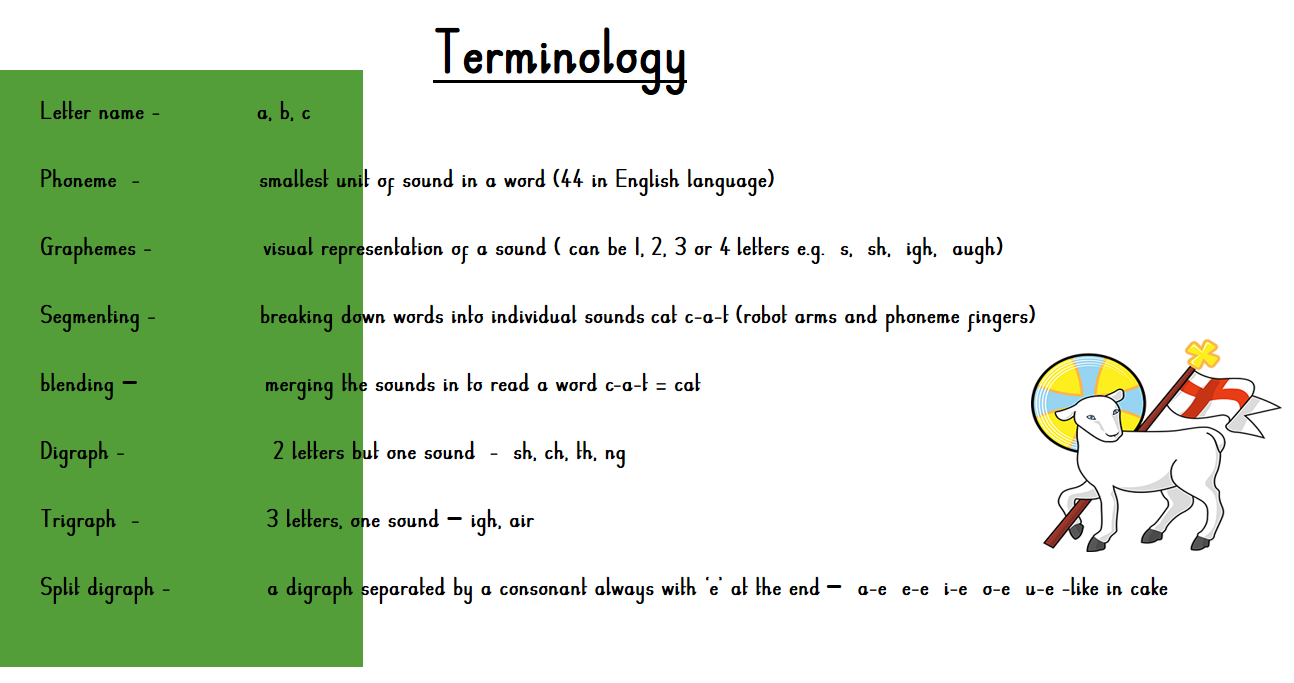Phonics and Early Reading
Bug Club Phonics Scheme

We have a very exciting phonics scheme called Bug Club, which is used by all early and beginner readers from Reception to Year 2, and as targeted intervention for children in KS2 who still need early reading support. Bug Club provides a solid foundation in reading for all pupils, using a systematic synthetic phonics (SSP) approach.
Extensive research into SSP, further endorsed by the July 2021 Reading Framework, shows that this method gives children the strongest foundation for reading. (https://www.gov.uk/government/publications/the-reading-framework-teaching-the-foundations-of-literacy)
Children learn to read by blending the sounds associated with letters. The reading books they bring home are carefully designed to consolidate learning from school, while also giving them the pleasure and pride of reading independently. All Bug Club Phonics books are finely levelled, ensuring every child reads at exactly the right level for their stage of learning.
What is Bug Club?
Bug Club offers a fantastic range of titles, graded into the same colour‑coded Book Band levels we use in school. Within each level, there is a carefully planned progression of books, giving children plenty of opportunities to practise, master each step, and move confidently through the phonics and reading programme.
At St John the Baptist C of E Primary School, we use Bug Club Phonics to deliver a complete systematic synthetic approach to phonics teaching. Our provision ensures that all children learn to read and spell well from the very start of their education.
Phonics forms the foundation for reading and spelling, helping children grow into confident readers and writers, with reading for pleasure at the heart of our curriculum. We believe all children should progress through the Bug Club Phonics phases with fluency and confidence. High‑quality teaching, resources, assessment, and intervention are central to our approach.
We provide a clear structure and sequence of lessons, supported by high‑quality resources, to ensure teachers cover the knowledge required to meet the aims of the programme.
Our reading and writing curriculum is carefully designed to follow a clear progression through the Bug Club Phonics phases.
Reception
-
Autumn: Phase 2
-
Spring/Summer: Phase 3
-
End of Year: Phase 4
-
Alongside phonics sessions, children cover aspects of Phase 1 (listening skills, sound discrimination, rhyme, oral blending) through songs and games.
-
Children learn sounds in order, recognise their position in words, and practise segmenting and blending for reading and spelling.
-
Irregular ‘tricky’ words are taught explicitly, with the tricky part explained. Flashcards are sent home for consolidation.
-
Cued articulation supports all learners, especially those with additional needs.
-
Children are assessed regularly, with targeted interventions provided as needed.
-
Weekly phonics reading books are sent home, expected to be read at least four times to build fluency.
-
Parents are invited to a Phonics and Early Reading workshop in Autumn 1.
Year 1
-
Children are assessed on Reception knowledge using Bug Club assessments.
-
Autumn: Phase 4 consolidation, progressing to Phase 5.
-
Pupils apply phonemes to alternative graphemes, embed segmenting and blending, and continue learning tricky words.
-
Regular assessment and targeted interventions support progress.
-
Weekly phonics reading books are sent home, linked to classroom learning.
-
Statutory Phonics Screening Check at the end of Year 1, with a parent workshop beforehand.
Year 2
-
Children are assessed using Bug Club and Year 1 screening data.
-
Pupils who did not meet the expected standard in Year 1 receive additional support and retake the screening.
-
Autumn: Recap Phase 5 to secure knowledge.
-
Progression into Phase 6: focus on spelling rules, prefixes, suffixes, and syllables.
-
Continued tricky word teaching, regular assessment, and targeted interventions.
-
Weekly phonics reading books continue to support fluency and accuracy.
Reading Badge Rewards
-
Children are expected to read at home at least four times a week.
-
Our Reading Badge scheme rewards consistent reading, celebrating the vital role parents play.
-
Each week of four reads earns a stamp; six stamps earn a coloured badge.
-
Five coloured badges and a Star Reader badge can be collected each academic year.
Interventions
-
In all year groups, children below age‑related expectations receive targeted support.
-
Additional phonics teaching follows Bug Club’s sequence, supported by decodable books.
-
In KS2, Bug Club Phonics continues as an intervention programme, with assessments guiding targeted teaching to address gaps and misconceptions.
At St John the Baptist, the impact of using a complete systematic synthetic approach is clear:
-
Children develop strong phonological knowledge, applying it confidently to reading and writing.
-
Pupils feel secure and fluent in reading and spelling, recognising rules and patterns.
-
Staff maintain high expectations, supported by CPD to ensure continuity and progression across phases.
-
Phonics delivery and impact are monitored regularly by the Phonics Lead and leadership team, ensuring consistency.
Phonics and reading are essential tools for accessing the whole curriculum. They enable children to engage with knowledge, explore ideas, and respond thoughtfully to the world. A strong phonetic foundation ensures our pupils flourish as readers and writers, developing socially, emotionally, intellectually, and culturally.
Parents - How to use Bug Club at home?
Please follow the links for more information and support for our phonics scheme.
All you need to know about phonics - Bug Club Phonics - Pearson
|
Sophie Thomson, Head of English and extended curriculum at Pearson, explains on this video the basics of phonics, how they work and provides practical guidance... |
|
Phonics: How to pronounce pure sounds | Oxford Owl Learn how to pronounce all 44 phonics sounds, or phonemes, used in the English language with these helpful examples from Suzy Ditchburn and her daughter. Useful information for Parents:
Cued Articulation, Phonics Phase 3: Sign With Steve - Cued Articulation, Phonics Phase 3 (CuedART) SWSVID001 Phonics games on cbeebies: Alphablocks Games, Puzzles and Learning Resources - CBeebies Phonics play interactive games: PhonicsPlay - Resources Topmarks phonics games: Letters and Sounds, English Games for 5-7 Years - Topmarks Phonics bloom phonics games: Phonics Games for the Classroom and Home - Phonics Bloom
|

